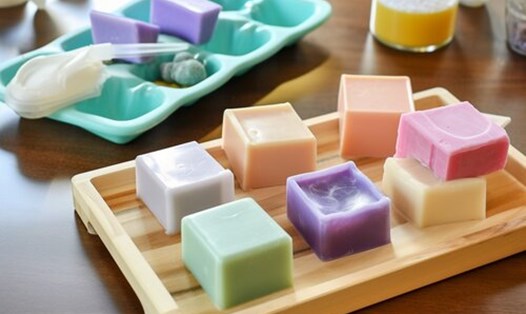Choosing the right mattress for seniors is especially important for getting a good night’s sleep. With age-related physical changes and health issues, seniors need a mattress that can provide maximum comfort for the body, helping them sleep deeply and without waking up every night.
Mattress thickness
Mattress thickness is one of the first factors to consider when choosing a mattress for the elderly. A mattress that is too thin can affect the spine, making the sleeper feel uncomfortable and prone to back problems.
On the contrary, a mattress that is too thick is also not a good choice, as it can cause difficulty for the elderly with bone and joint problems or poor mobility.
To ensure the best comfort and support for the elderly, the mattress should be 15 - 25 cm thick. With this thickness, the mattress is soft enough to reduce pressure on the body but still provides the necessary support for the spine, joints and muscles.
Mattress quality
Mattress quality also plays an important role in ensuring comfortable and safe sleep for the elderly. The elderly often have health problems such as joint pain, spinal diseases, or blood pressure problems.
Therefore, a good quality mattress not only helps improve sleep but also reduces symptoms of illness, while improving overall health.
When choosing a mattress, you should prioritize products from reputable brands that have passed quality inspection. The mattress needs to be durable, not sag after a period of use and ensure that it retains its original shape over many years.
In particular, the mattress must be breathable, helping to regulate body temperature well to prevent sweating while sleeping - a common problem in the elderly.
Elasticity
The elasticity of the mattress is an indispensable factor when choosing a mattress for the elderly. A mattress with good elasticity will help support the body when lying down naturally, reducing pressure on contact points such as the shoulders, hips and back.
This is especially important for older adults, as the musculoskeletal system often weakens over time and needs proper support while sleeping.
If the mattress is too soft, it will lead to incorrect sleeping posture, increasing pressure on the spine and joints. On the contrary, if the mattress is too hard, it will cause discomfort and pain, especially in areas of the body that bear a lot of weight such as the shoulders and hips.
A mattress with moderate elasticity will help keep the spine straight, support deep sleep and reduce pain symptoms the next morning.
The quiet
Elderly people are often easily awakened by small noises, so when choosing a mattress for the elderly, the quiet factor also needs special attention. The mattress should not make noise when the person changes sleeping position. Mattresses with poor quality springs often make noise and this will more or less affect sleep.
High-quality natural latex or foam mattresses are the best choice to ensure a peaceful sleep for the elderly. This material is not only soft, but also helps to reduce noise and create a quiet, uninterrupted sleeping environment.








